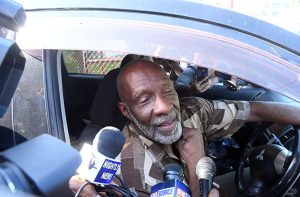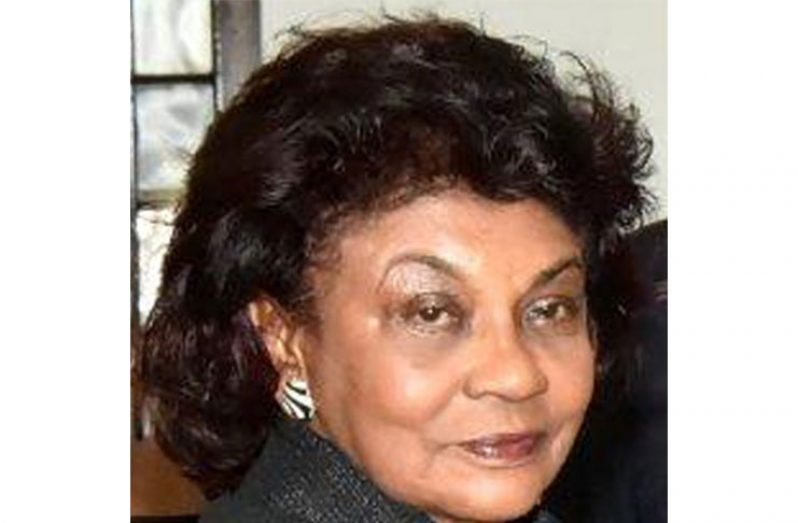…more than 300,000 fresh names to merge with database
…longer period to be set for claims and objections
THE Guyana Elections Commission (GECOM) has shortened the house-to-house registration exercise, which will allow for a longer period of claims and will merge the over 300,000 fresh registrants with the existing National Register of Registrants (NRR) database.
Chairperson of GECOM, Retired Justice, Claudette Singh, decided to cut short the process to August 31, 2019 after hearing arguments from both government-appointed GECOM commissioners and People’s Progressive Party (PPP)-appointed commissioners during a statutory meeting on Tuesday.

In immediate reactions following the meeting, commissioners from both sides shared mixed views about the decision to merge data garnered from the house-to-house registration process with the NRR. Government-appointed GECOM Commissioner, Vincent Alexander, said data garnered so far, from the national registration exercise, is integral to the preparation for elections.
“It is a process and well the process will go on…all the information garnered will be taken into consideration for further compilation of the voters’ list. “I think what is important is that the house-to-house information will not be discarded…that information will be integral to the process…the process is still unfolding and it is still a work in progress,” said Alexander in an invited comment following the meeting on Tuesday.
There were, however, contrasting views from PPP-appointed commissioners who opposed the idea of merging the house-to-house data with the NRR. PPP-appointed commissioner, Sase Gunraj, said the information garnered from the national registration process is unverified data and as a consequence should not be used. He, however, left it to GECOM’s secretariat to come up with a method regarding the use of the data. “Any merging or verification of the data by using house-to-house is wrong, it will take a long time and it will contaminate the NRR…we are very unhappy about it,” said PPP-appointed commissioner, Robeson Benn.
Benn believes that the use of the house-to-house registration information is another ploy to delay the holding of elections. Despite the contrasting views on the use of the data, GECOM in a press release stated that data garnered from the registration exercise “must” be merged with the existing NRR.
According to GECOM, the data will be merged because the Chief Justice (ag) Roxane George-Wiltshire had ruled that the house-to-house registration exercise, which commenced on July 20, 2019, is not unlawful and is constitutional.
In the August 14 High Court judgment, the acting chief justice ruled that the ongoing house-to-house registration, being undertaken by GECOM, is within the confines of the Constitution, and is therefore legal. Justice George-Wiltshire ruled that the Constitution and the Laws of Guyana provide for the conduct of house-to-house registration as a form of verification – a position that was argued by both the government and GECOM. The countrywide house-to-house exercise was conducted in keeping with a decision of the commission on February 19, 2019 and in accordance with Order No. 25 of 2019 dated June 11, 2019. The exercise was scheduled to end on October 20, but, according to GECOM, Order 25 of 2019 published in the Official Gazette should be amended for the exercise to conclude on August 31, 2019. Approximately 297,126 persons have been registered to date in the house-to-house registration exercise.
EXTENSIVE CLAIMS AND OBJECTIONS

Meanwhile, GECOM said it has an obligation to produce a credible OLE in the first instance and ultimately credible elections within the shortest possible time. In that regard, the commission will move to ensure all arrangements for the publication of a credible Preliminary List of Electors (PLE) before commencement of an extensive Claims and Objections exercise.
“The commission will continue to further deliberate on other matters of importance for the holding of General and Regional Elections within the shortest possible time and the secretariat will continue to implement a number of operations activities, in particular, training of polling-day staff and procurement of non-sensitive materials,” said GECOM.
When asked about his thoughts on the C&O, Alexander said: “it obviously is not the perfect method that we have been working towards and it is also not the abandonment that others have been working towards.”
On previous occasions, Alexander had argued strongly that one of the ideal ways of cleaning the OLE was through house-to-house registration. House-to-house registration was established as a new registration exercise and all eligible persons were asked to register even if they were previously registered. It was reported that upon conclusion of the exercise, a new National Register of Registrants Database (NRRDB), which is reflective of the current Guyanese population, will be created. Subsequently, the OLE will be extracted for the purpose of conducting General and Regional Elections.
Although the house-to-house process was validated by the acting chief justice, she had ruled that it would be unlawful or unconstitutional to remove the names of persons who are already on the List of Registrants and who were not, or have not been, or are not registered in the current exercise with a consequence of non-inclusion on the list of electors.
Justice George-Wiltshire had explained that persons could only be removed from the list if they are deceased or disqualified pursuant to Article 159. In that judgment, she also ruled that residency, in the case of Guyanese, was not a requirement under the laws.
CJ ERRED
Attorney-General and Minister of Legal Affairs, Basil Williams, however, argued that the acting chief justice erred when she ruled that it would be unconstitutional to remove persons from the National Register of Registrants if they fail to register during this cycle of house-to-house registration. He laid out 16 grounds as he appealed, in part, the judgment on house-to-house registration. A date for that case has not been set. The issue of holding elections and a number of legal challenges in the local courts and at the Caribbean Court of Justice (CCJ) were triggered by the passage of a no-confidence motion against the government which was tabled by the Parliamentary Opposition and passed in the National Assembly, on December 21, 2018.



.jpg)









